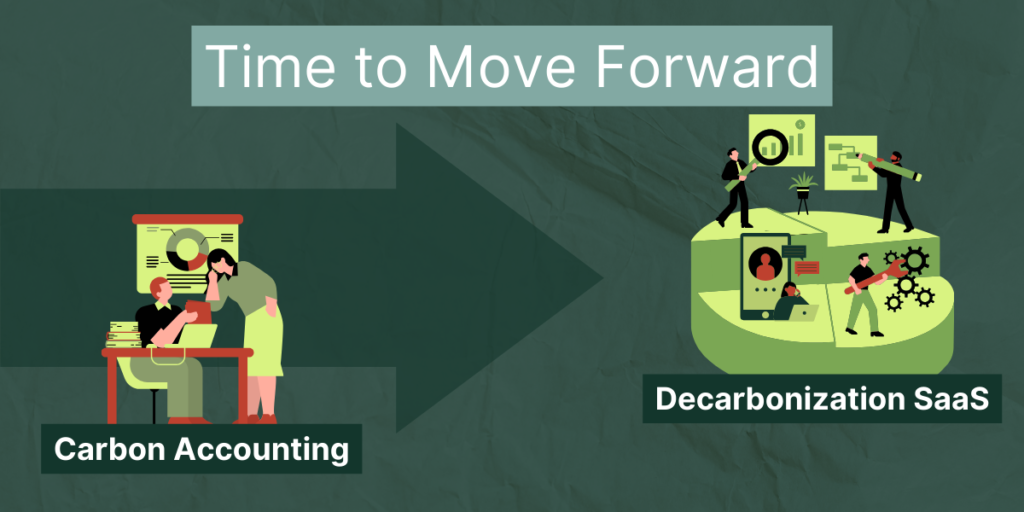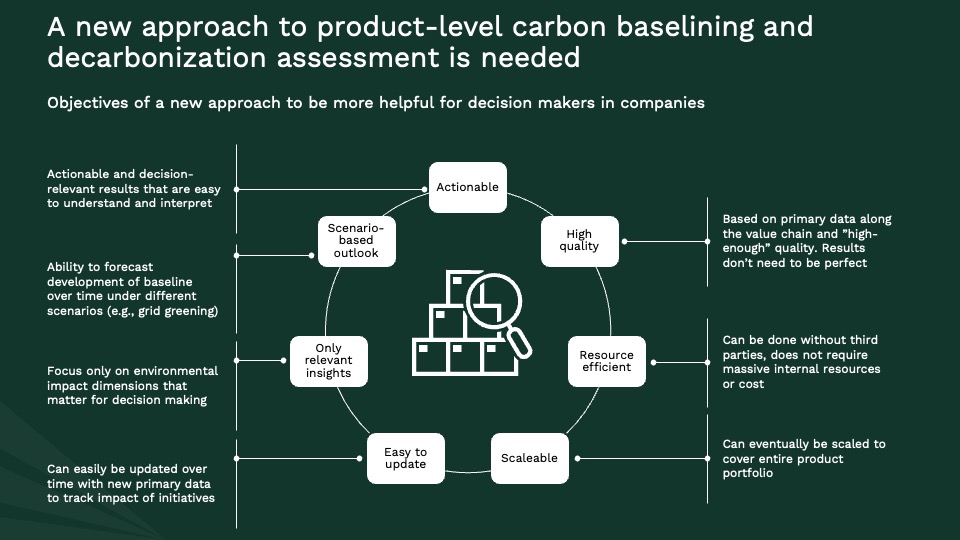Time to move forward: carbon is not an accounting problem

Despite investments in carbon accounting, emissions are at record highs. Companies may be trying to decrease their carbon emissions, yet they simply do not have the appropriate tools for doing so. Learn about the difference between carbon accounting and decarbonization SaaS and how to shift from measurement to action.
Decarbonizing Christmas trees

In this exploration of the sustainability of artificial Christmas trees, we delve into the environmental impact of their increasing popularity. Traditionally, these trees are made from materials like plastic, aluminum, and steel, whose production processes are high in carbon emissions. This fact is starkly highlighted by our analysis of a typical artificial tree, which reveals significant CO2 emissions associated with its production. However, there is a silver lining. Our research, utilizing the Terralytiq Platform, has identified 84 sustainable alternatives that significantly reduce the carbon footprint of these trees. These alternatives range from switching to renewable energy sources to increasing recycled material usage. We developed two potential pathways to sustainability: Pathway A focuses on cost-effective and carbon-reducing measures, while Pathway B adds more comprehensive, albeit costlier, initiatives. The adoption of these pathways could lead to a dramatic decrease in carbon emissions by 2030, making the production of artificial Christmas trees not only more environmentally friendly but also more cost-effective. This study underlines the importance of sustainable manufacturing practices and showcases how environmental responsibility can align with economic benefits.
The Imperative and Challenge of Product Decarbonization

In the face of the accelerating climate crisis, this blog post offers a guide to corporate decarbonization, particularly focusing on product decarbonization. We discuss the rising tide of transparency in corporate carbon accounting and reveal that nearly half of global market capitalization now actively discloses carbon footprints. Carbon accounting and decarbonization efforts are not just ethical moves but strategic imperatives for gaining a competitive advantage. This is underscored by the changing business landscape where clients—especially in B2B sectors—are demanding transparency and actionable plans for future decarbonization. Regulatory changes like the EU’s Carbon Border Adjustment Mechanism and the U.S.’ Inflation Reduction Act are additional driving forces. This post also delves into the challenges and complexities of Scope 3 emissions and Life-Cycle Analyses (LCAs), and argues that a new, less resource-intensive approach is essential. Anticipating this need, we introduce Terralytiq’s Low-Carbon Products (LCP), a forthcoming SaaS tool aimed at simplifying carbon footprint data collection and analysis. The central message is that proactive decarbonization is not just environmentally responsible but a multifaceted strategy that offers businesses operational, financial, and reputational gains.
